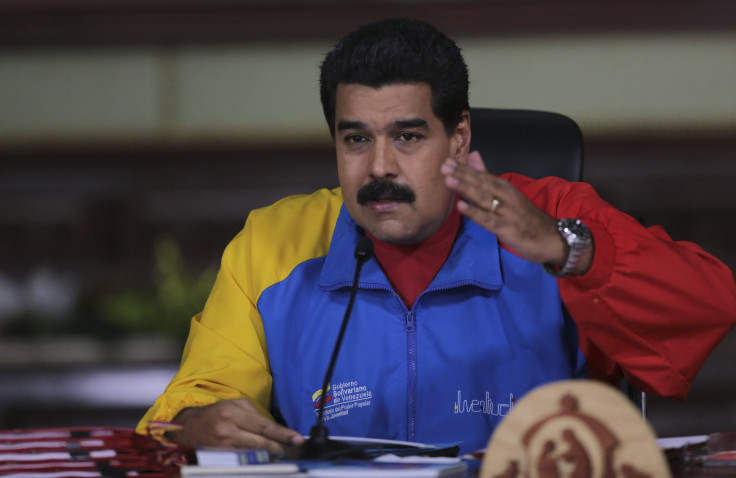Venezuela’s Ruling Party Announces Phone Number And Email Address For Denouncing ‘Infiltrators’

With a president suffering at the polls and internal divisions among Chavistas, the ruling United Socialist Party of Venezuela, PSUV, has unveiled a new way of shoring up unity within its ranks: a phone line for denouncing “infiltrators” within the party. “The enemy who harms us is the enemy within our ranks,” Francisco Ameliach, vice president of electoral issues for the PSUV and governor of Carabobo state, said in a radio address this week. “It’s the one who calls himself Chavista but is not Chavista.”
Ameliach took to Twitter to announce a new phone number and email -- a Gmail address that translates to “denounce infiltrators PSUV” -- for Venezuelans to identify anyone they consider disloyal to the country’s main Socialist party. “The militant who is fomenting disunity should be denounced through denunciainfiltradospsuv@gmail.com, and via SMS [text] at 0416-9425792,” Ameliach tweeted on Wednesday afternoon.
El militante que esté fomentando la desunión debe ser denunciado a través de: denunciainfiltradospsuv@gmail.com, y vía sms al 0416-9425792
- Francisco Ameliach (@AmeliachPSUV) November 12, 2014PSUV officials have given no details about how supposed infiltrators would be investigated or punished after being identified. International Business Times sent a text message and email through the system requesting more information and received no response.
The move comes as Venezuela’s ruling party continues to grapple with internal fractures. Jorge Giordani, a former planning minister under late president Hugo Chávez, wrote an open critique of President Nicolás Maduro’s economic policies and leadership over the summer, and the sentiments were echoed by a number of other well-known Chavistas, including high-profile PSUV member Héctor Navarro. The PSUV suspended Navarro shortly afterward.
On Wednesday, National Assembly leader Diosdado Cabello asked members of the party to resolve their differences and form a “united force,” saying that the party of Chávez was still in an “economic war of truth” against Venezuela’s political opposition.
On Twitter, Ameliach has received some cheeky replies from Venezuelans highly skeptical of the PSUV’s new tactic. “The ‘snitches’ now have a cell phone and an email address that facilitates their work. This government thinks of everybody,” wrote Twitter user @tamile158.
@AmeliachPSUV @HLGNapita Los "sapos" ya tienen un celular y un correo electrónico que les facilite su trabajo..Este gobierno piensa en todos
- Tami León (@tamile158) November 13, 2014Others directly accused Ameliach of launching a witch hunt within the party. “You use your position to start a witch hunt against the critic and the independent thinker, you are a s--t human being,” wrote user @nic0ntent0.
@AmeliachPSUV Utilizas tu cargo para empezar una cacería de brujas contra el crítico y el q piensa distinto, eres una MIERDA DE SER HUMANO.
- Nicolas Davalillo (@Nic0ntent0) November 14, 2014Meanwhile, President Nicolás Maduro has faced sliding poll numbers, with only a 30 percent public approval rating as of last month, as the country grapples with continuing shortages, soaring inflation and a global slump in oil prices that has exacerbated some fears of a default. The PSUV will hold internal elections on Nov. 23.
© Copyright IBTimes 2024. All rights reserved.












